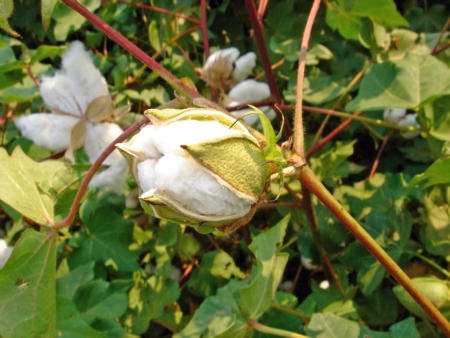
Posts Tagged: Doug Munier
Pest threats 'overblown'

The board agreed to revisit the 2008 regulation that prevents cotton growers from planting in the same field three years in a row if the level of verticillium wilt is detected in 3 percent or more of the crop.
Doug Munier, farm advisor for University of California Cooperative Extension, said verticillium dahliae exists in native valley soils and is spread by movement.
"Verticillium was a minor problem with cotton was first planted in the mid-1990s and it is still a minor problem after 17 years of production," he said.
New bee threat more media hype than reality
Wayne Anderson, The Washington Times
Government officials, leading bee experts and average beekeepers around the country say the strange discovery of a deadly bee parasite fly that makes honeybees act "zombie-like" is not seen nationwide — but only in a recently published San Francisco State University study. And some even question the veracity of the discovery itself.
The parasite fly is a long-time resident of California and a known nemesis to other bugs besides honeybees, the article said.
“They’ve been known to infest or parasitize bumblebees for some time all over the country,” said Eric Mussen, California State bee specialist and professor at the University of California, Davis. “It’s not new. We’re aware of it. I don’t believe it’s a terribly important thing to honeybees as a whole.”
Roundup Ready canola becomes a problem weed in California
Two UC Cooperative Extension farm advisors have found that Roundup Ready canola can be overly persistent in California, according to an article in Western Farm Press.Doug Munier of UCCE in Glenn County and Kent Brittan of UCCE in Yolo County studied the herbicide-resistant oil crop to determine its potential for biofuel. However, they found that yields were too low to make canola a profitable irrigated California crop.
"They gave up on canola, but canola did not give up on California," wrote Farm Press editor Harry Cline. "It is still around in many fields, three or four years after it was grown as a commercial crop."
The problem is canola's tendency to shatter. Seed matures from the base of the stem sequentially up to the top of the main stem. By the time the seed at the upper part of the plant is mature, the pods at the bottom of the plant will likely have fallen to the ground, or "shattered."
Munier told the reporter that a significant percentage of canola's "shattered seed" does not germinate the following year. When the shattered seed is incorporated into dry soil, it creates secondary seed dormancy.
As an example, Munier related the experience of a Sacramento Valley farmer growing Roundup Ready alfalfa.
“The grower sprayed his Roundup Ready alfalfa and got beautiful weed control except for what he thought was mustard. The herbicide did not touch it," Munier was quoted in the story. "His PCA looked closer and discovered it was Roundup Ready canola. Recognizing the problem, he rogued out the canola."
For a trial in the Chico area, Munier planted Roundup Ready canola in the fall of 2006. Harvested the next summer, the field was summer fallowed in 2007 followed by fall-planted wheat. Roundup Ready canola volunteers from the 2007 harvest are still sprouting in 2010.
“This is not just a weed, but one totally resistant to Roundup, a herbicide that is intensely used in a wide variety of high value crops in California,” Munier told the reporter.

Canola reseach plot.
